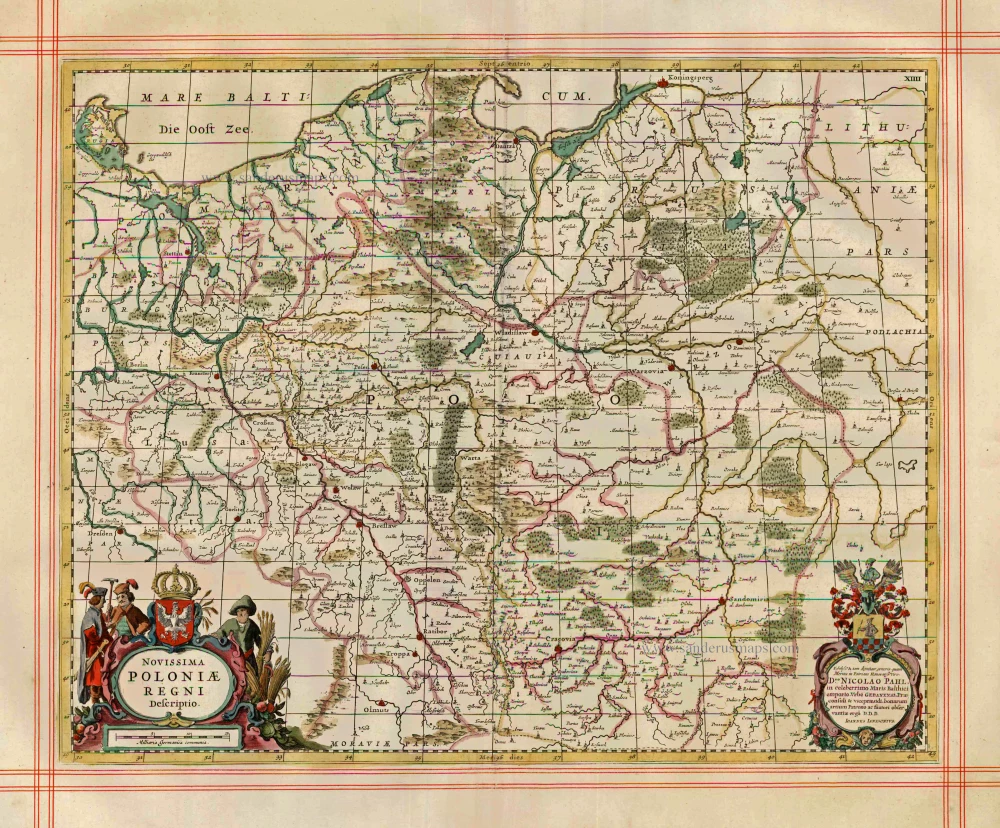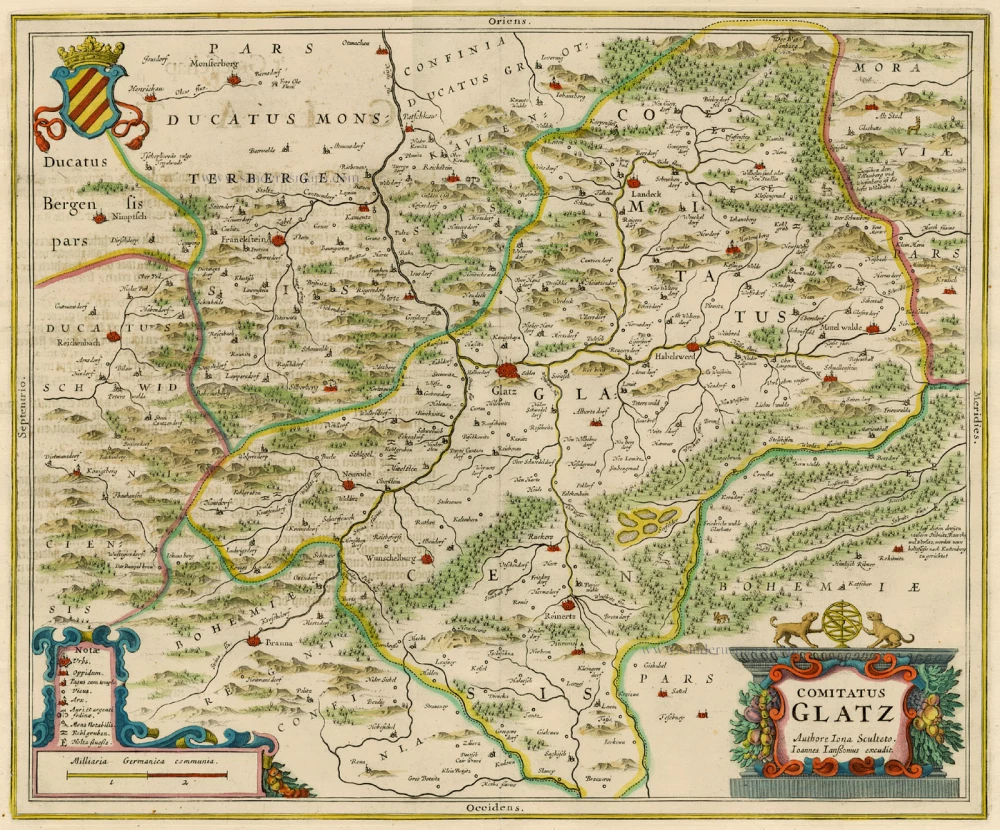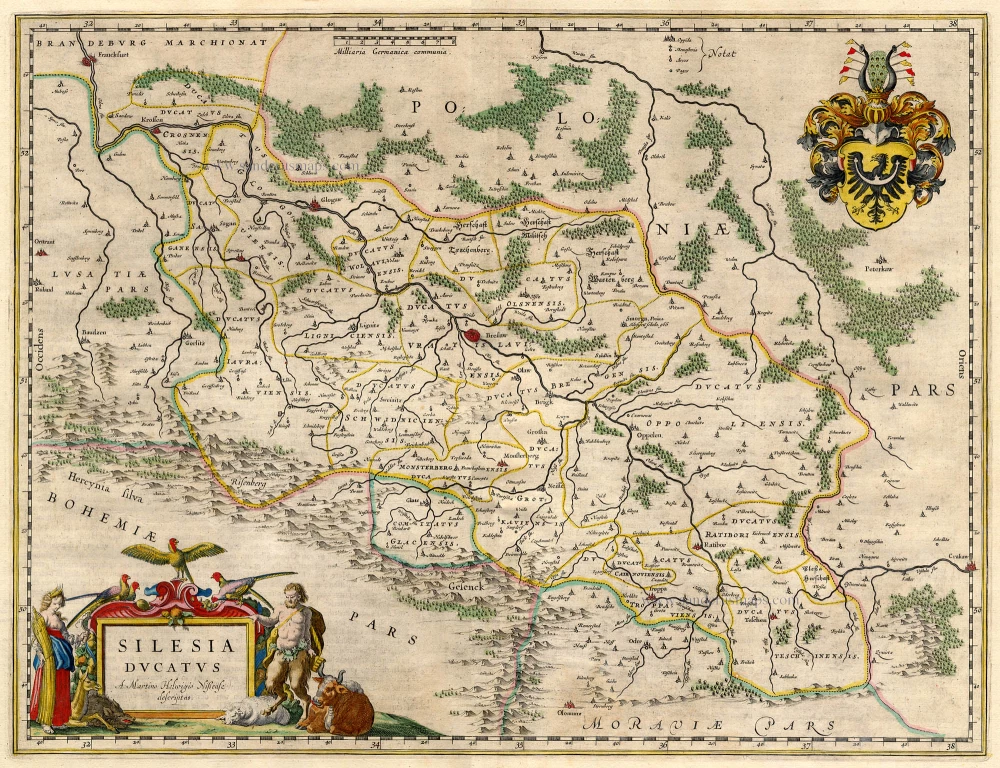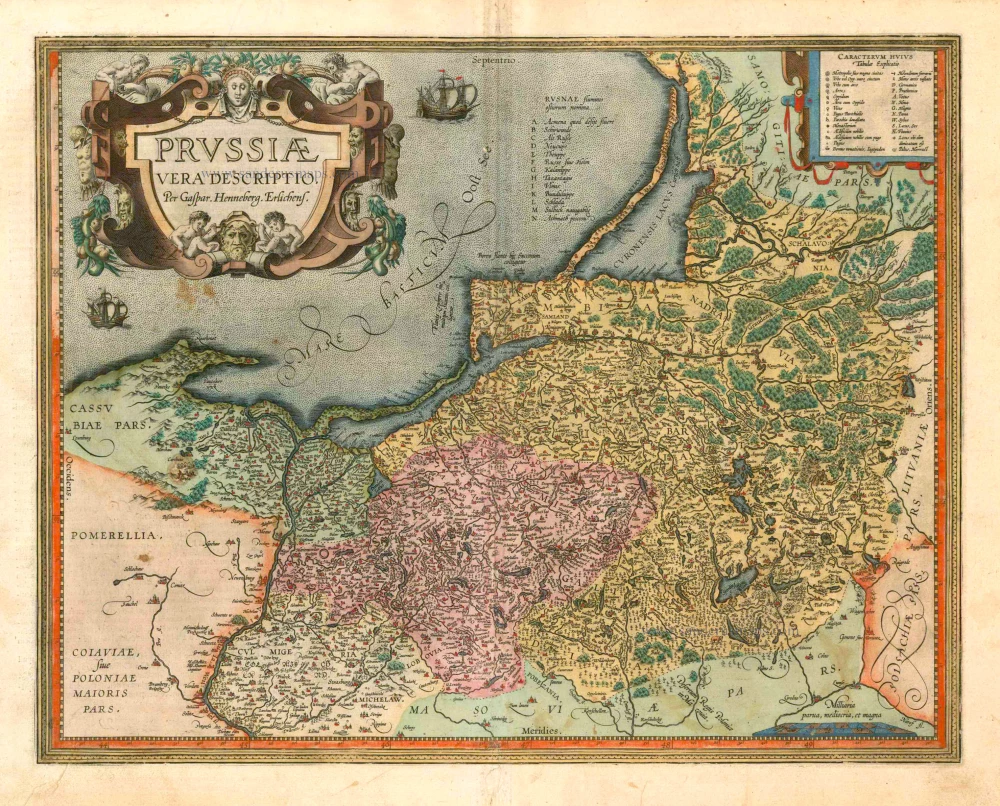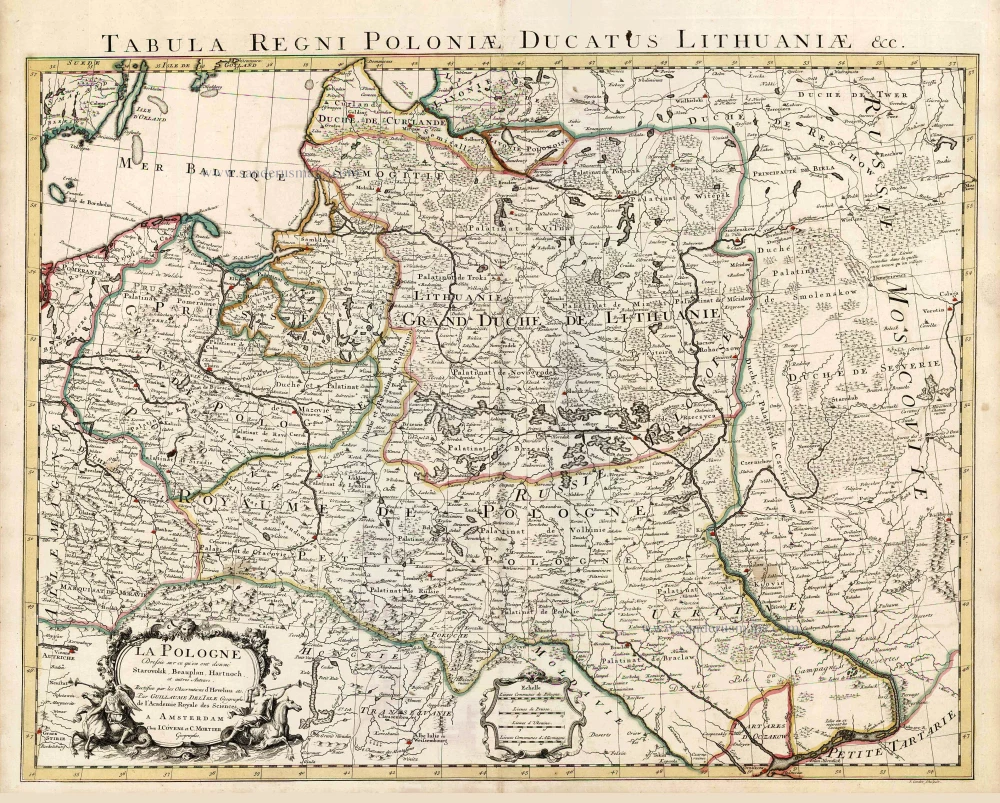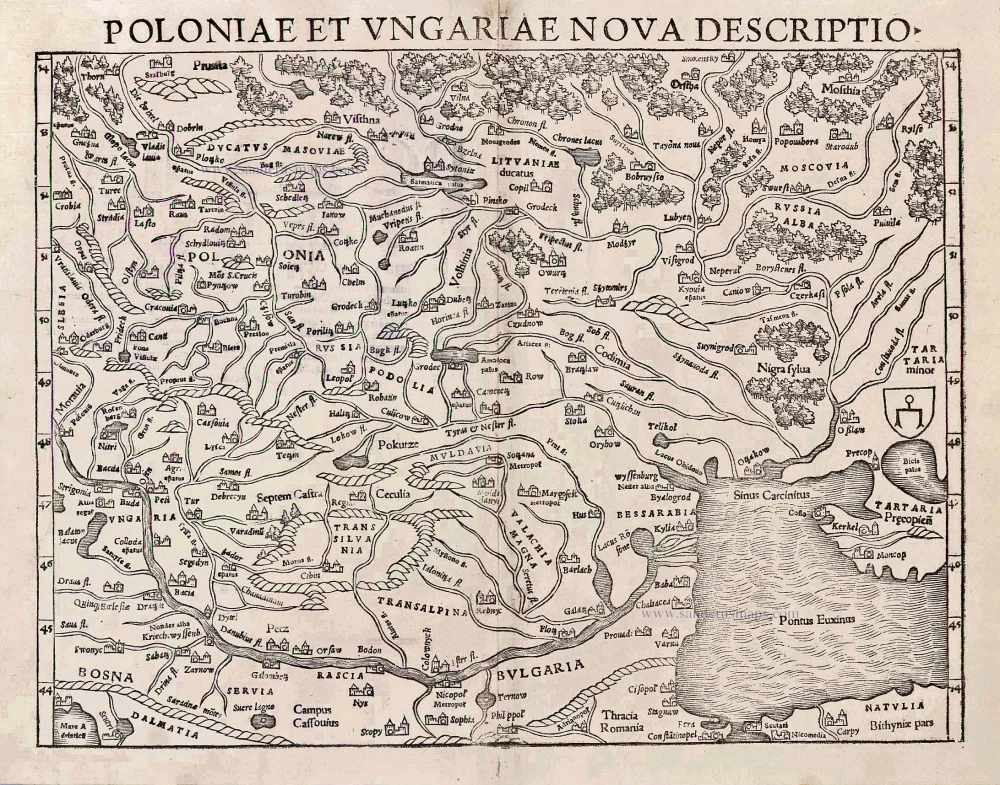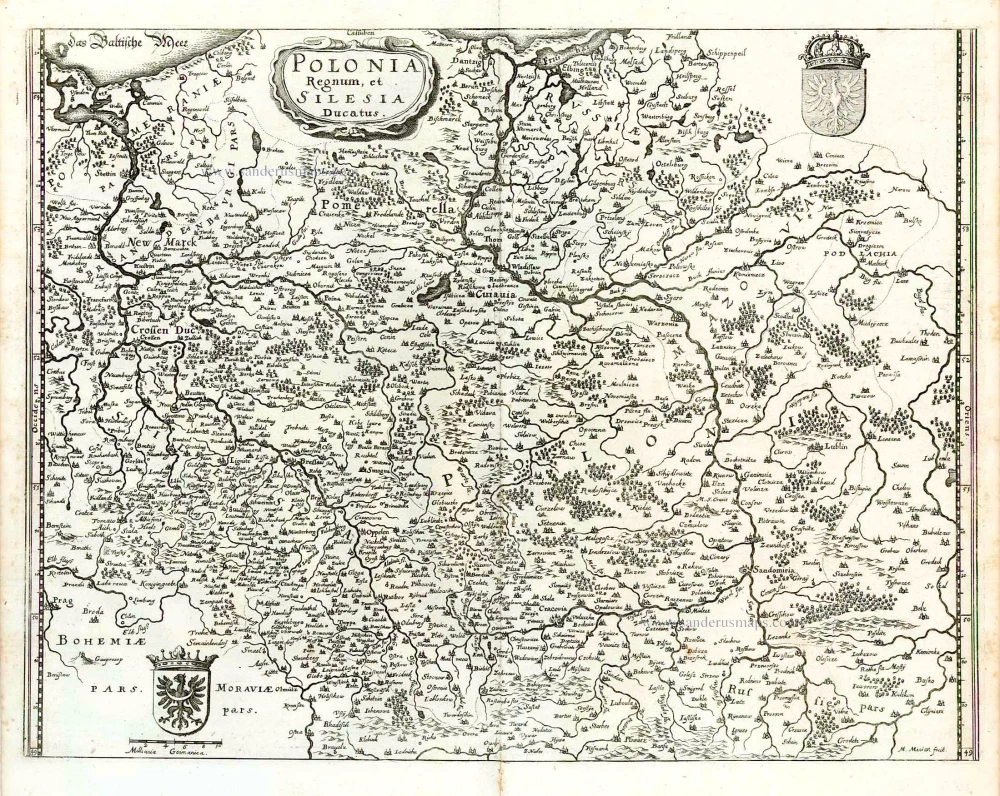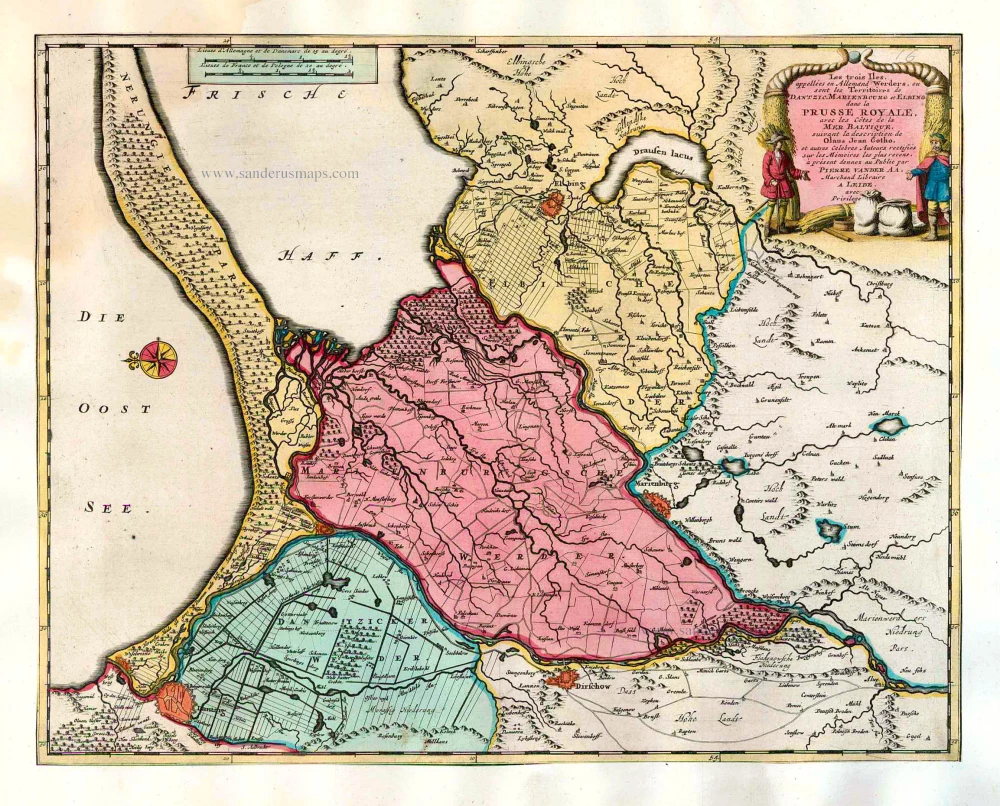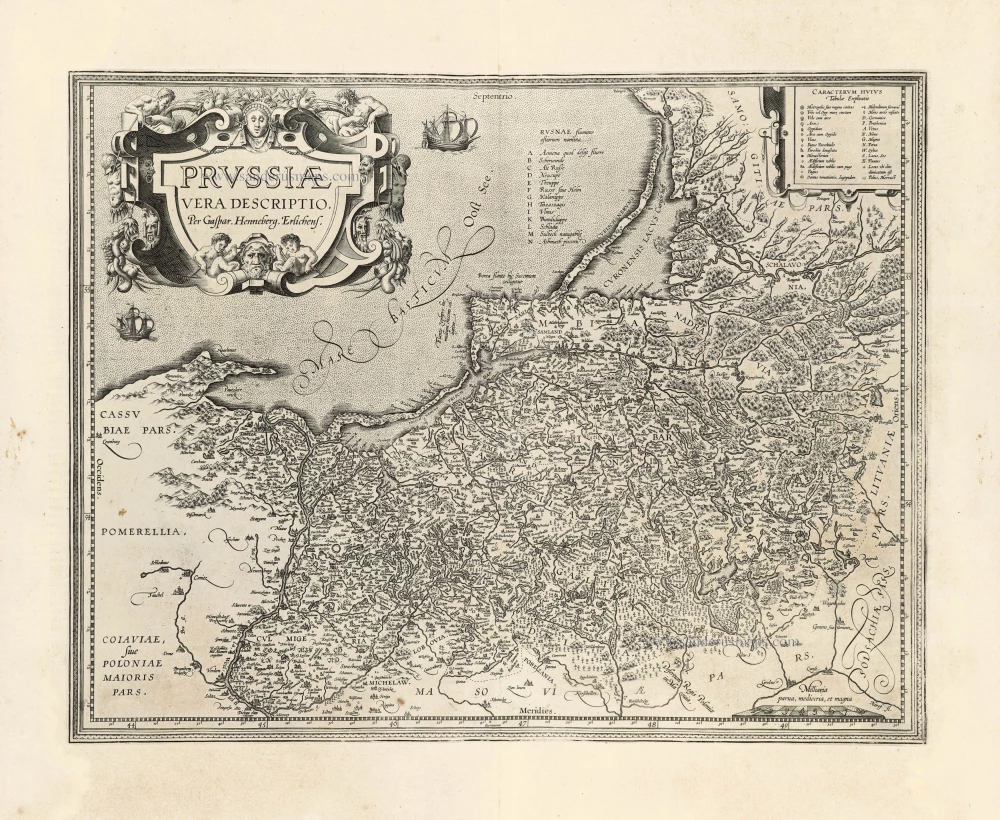Old, antique map of Poland by J. Janssonius, published by Moses Pitt and J. Janssonius-Waesberge 1680
Moses Pitt (1641-1697)
Moses Pitt, a London based map publisher and bookseller, planned a 12-volume world atlas based on Janssonius’ Atlas Maior. He entered into a partnership with Johann van Waesbergen, one of the heirs of Johannes Janssonius, and Steven Swart. Both publishers had versions with their own imprint. Only four volumes were issued. The undertaking ruined him, and he was imprisoned for two years for debt.
The maps are generally printed from reworked plates of Janssonius. The imprint of Janssonius van Waesbergen and Pitt is added and, to facilitate finding places with the index, the grid of parallels and meridians is added. In all probability, the maps were printed in Amsterdam and shipped to Oxford to be bound with the text.
Novissima Poloniae Regni Descriptio.
Item Number: 25064 Authenticity Guarantee
Category: Antique maps > Europe > Eastern Europe
Old, antique map of Poland by J. Janssonius, published by Moses Pitt and J. Janssonius-Waesberge
Date of the first edition: 1656
Date of this map: 1680
Copper engraving
Size: 43.5 x 53.5cm (17 x 20.9 inches)
Verso: Blank
Condition: Hand coloured, on large, heavy paper, ruled in red, excellent.
Condition Rating: A
References: Van der Krogt 1, 1900:1D.2.
From: The English Atlas. Oxford, Moses Pitt, 1680. (Van der Krogt 1, 451)
Moses Pitt (1641-1697)
Moses Pitt, a London based map publisher and bookseller, planned a 12-volume world atlas based on Janssonius’ Atlas Maior. He entered into a partnership with Johann van Waesbergen, one of the heirs of Johannes Janssonius, and Steven Swart. Both publishers had versions with their own imprint. Only four volumes were issued. The undertaking ruined him, and he was imprisoned for two years for debt.
The maps are generally printed from reworked plates of Janssonius. The imprint of Janssonius van Waesbergen and Pitt is added and, to facilitate finding places with the index, the grid of parallels and meridians is added. In all probability, the maps were printed in Amsterdam and shipped to Oxford to be bound with the text.

